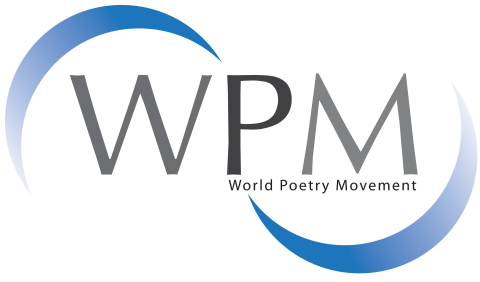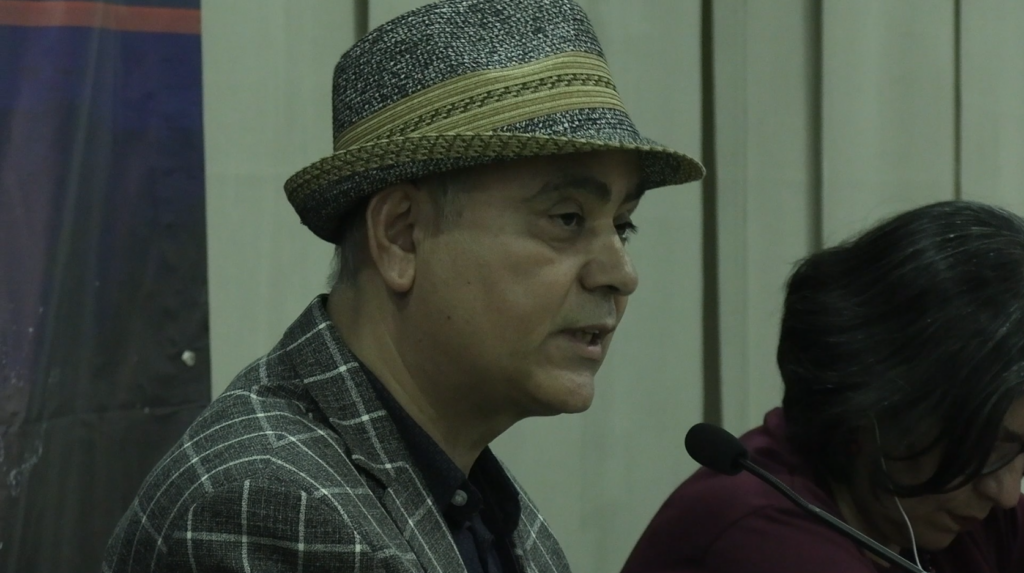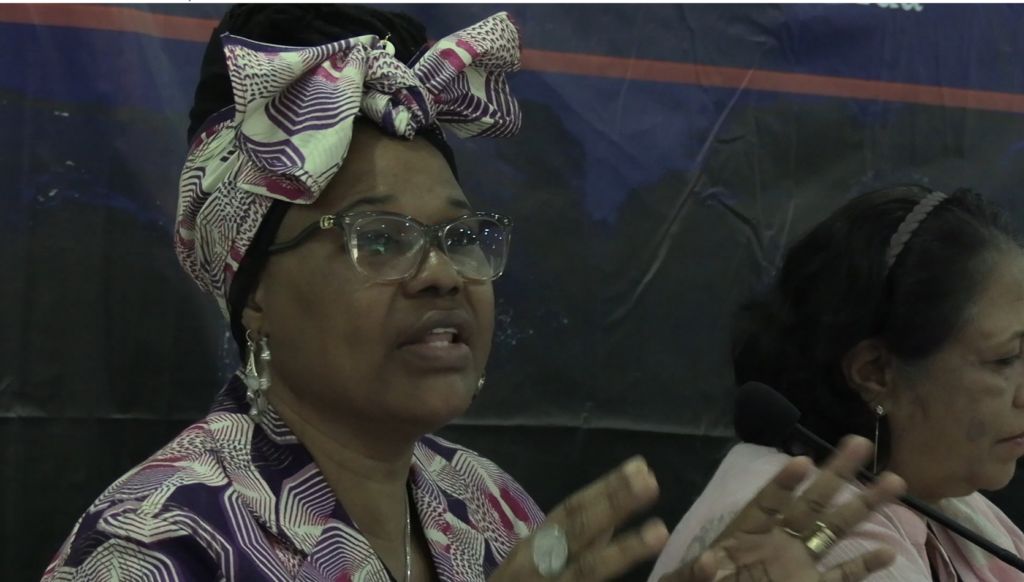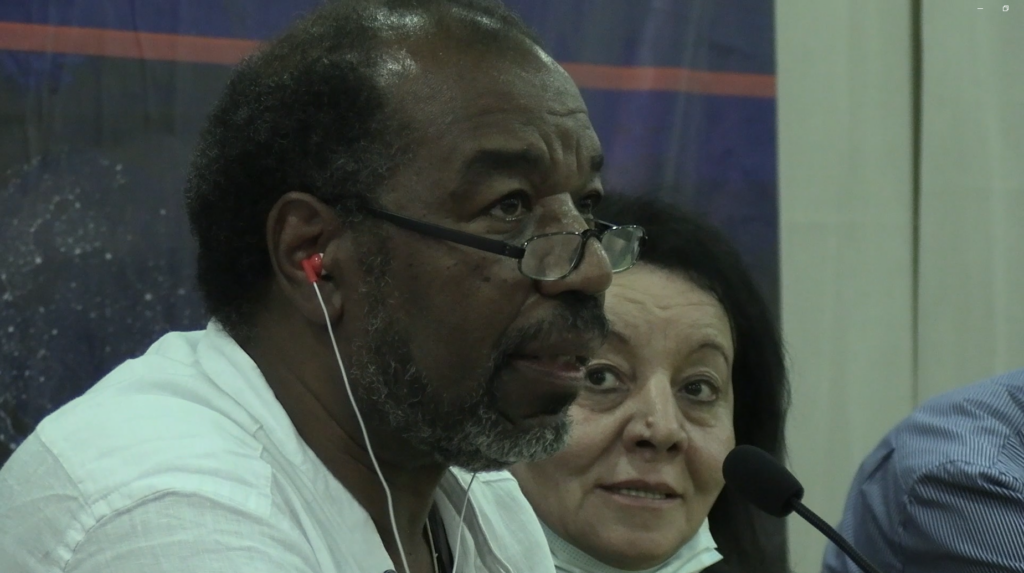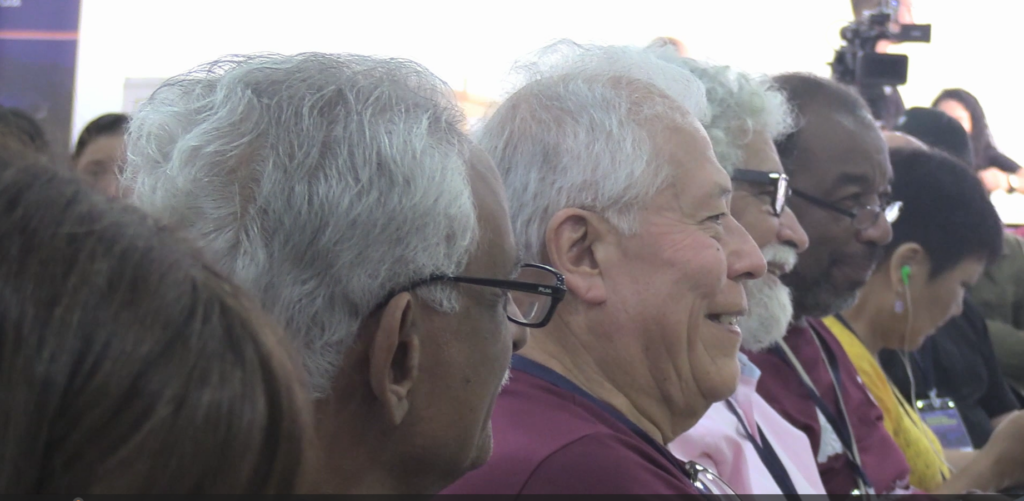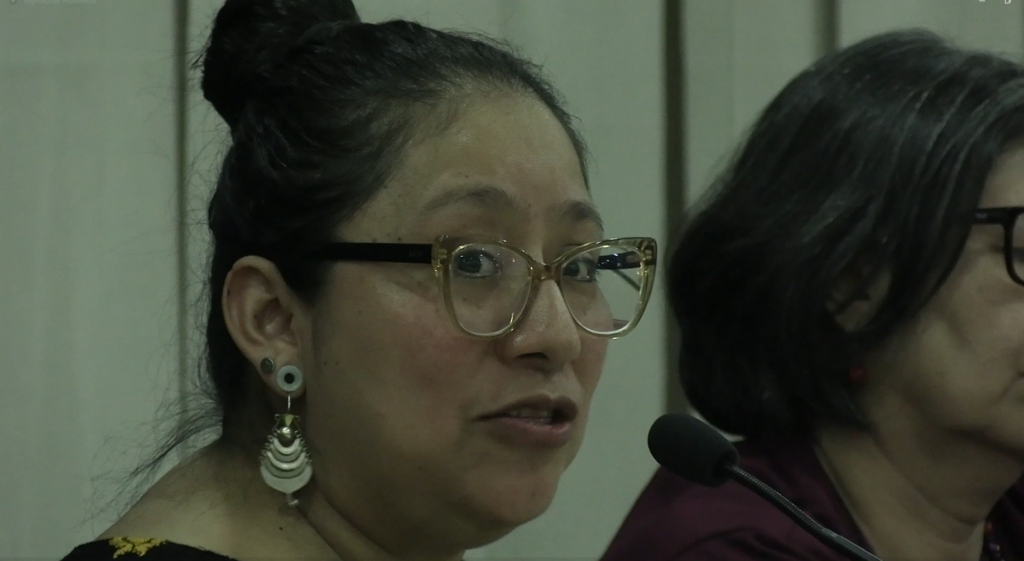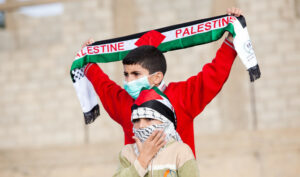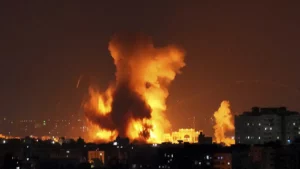Carried out by: Mónica Lucía Suárez (WPM Colombia) and Melissa Merlo (WPM Honduras).
Time: 2:00 pm to 4:15 pm
Ana María Oviedo (Bolivarian Republic of Venezuela)
She asks to establish a dialogue on what was heard in the morning. She asks for a particular contribution to her continent, and she will moderate the order of the interventions.
Nurduran Duman (Türkiye)
Human beings can protect the earth. Our job as poets is also to protect the earth. The poet should be able to embrace the earth, to feel, to experience. We must give everything for the human being. Education, art, love are affected by hegemonies, but we understand that life can be better, everything has to do with humans, our job is to improve living conditions.
The poetry of migration is important, art is a big family, we poets are responsible for using the tools that the earth gives us, must recreate the basis for the understanding of poetry, do justice to create fewer people who do not connect with poetry and transform. It is to enrich, to enlighten in times of darkness. In Turkiye culture they have a saying: when we are busy crying about any situation our mother comforts us and tells us that nothing will happen, words have power. It is a difficult job, it requires our energy to do the best job, everyone should have translation programs to read poetry, when you translate a text into other languages, you transmit love, it allows us to embrace each other, it is a gift of life.
Nicole Cage (Martinique)
She comes from a piece of land surrounded by history, Martinique. It is a concern to make known in her country what happens in this Congress, to collect the texts of the poets of America, and to publish an anthology, mainly from the Caribbean area, in English, Spanish and Creole. This edition makes visible and makes known the creativity of blacks and Afro-descendants in Latin America.
Nese Yasin (Cyprus)
In her country the narrative history was presented very cruelly. When she was young she was treated as a traitor, and had to leave her country, she has seen hatred and violence. She wants to help not only her country, but the whole world. She wrote from a dark cell. Those childhood memories come now, and tell her that she was there for a very important reason, to see the power of life and to fight for it. To be accepted by others.
Nothing should distract us from our goals. The story made of massacres can become a story of life. We must decide on our emotions and our choices. Even if we do not see the concrete reasons, we can choose.
As in the past, poetry continues to play a role that nothing else can fill. Poetry continues to fill a role that nothing else can fill, poems touch places that other writings cannot. The use of the verses of intuition can be felt, the world can be changed with love.
Shivani Sivagurunathan (Malaysia)
She makes practical suggestions: different works, to take poetry to young people, to educational spaces, to do it in a global way. The second thing is the environment, a global platform in which ecopoetry is mentioned, involve scientists, talk about that. Bringing poetry that talks about our world today.
Poetry has created this platform to reach all countries, not only to share poetry, but to share what others write, and what we are doing from the social and cultural point of view.
Enrique Sánchez Hernani (Peru)
He congratulates the creators of the Strategic Plan.
The defense and respect for the civil rights of each country, which have a place in poetry, should be more highly valued.
It should be considered in the policies, to be able to act with regional and municipal governments with smaller entities that can act with less bureaucracy. On the other hand, to try to influence in the cultural level, from the academies and universities and at school level, that come from national and regional proposals. Poets born of the people who have collectives where they develop a great activity around poetry. As for threats, he emphasizes the emergence of harmful neo-fascist tendencies around the world. Persuade publishers to support poetry, in its edition and sale.
Influence the mass media in order to develop our policies.
Nicolás Antonioli (Argentina)
There is an advance of the ultra-right that artists in his country must fight. It seems important to him the development of poetry schools, to take advantage of the fact that many members of the movement are editors, to develop a manual for teaching and learning poetry for the workshop leaders and teachers of the schools and thus strengthen it because it is usually marginalized. Regarding ecopoetry, to promote it and make an edition to include a seed as an initiatory gesture to raise awareness.
Imdad Aakash (Pakistan)
He comes from a country that was created by British and American communism. Since its creation it has been ruled by politicians and bureaucrats who have not been interested in the people and their culture. Now they are fighting for the people of Pakistan. Those who rule have no interest in democracy or human rights. Poetry is the least of their concerns. But progress comes and brings surprises and hope. He has spent a good part of his life in police stations, in prisons because I have spoken out against injustice, for the disappeared. And in this atmosphere the poets of your country have been punished for writing poetry for progress and for speaking out against the government. Nobody knows what they have gone through, in this atmosphere they are trying to establish poetry as the voice of progress, of human rights, of the people, for the environment, for literature. Young people are suffering and I can assure you that the WPM will contribute to all this progress that they dream of.
Achour Fenni (Algeria)
The region of Algeria is a region where we have a very rich poetry and we write for diversity, in terms of practice and poetics. Diversity is very important to us. We have started to see the results of promoting poetry by organizing poetic actions on the national situation. We also do projects called the search, it is Algerian poetry that forms political ideals, and looks at the situation of the world. We do a lot of work with public associations and it allows us to take it to television and other media to make poetry known. The Movement is the most organized way to carry out these actions from its cultural richness and Arab and African heritage. They work the installation of how a national network of public poets with 40 cities and 200 activities revolving around poetry. The Algerian poetry house have initiated the project which is the search for essential poetry to spread it in other continents. First with the poets, then with the public and private sectors. Poetry is to accompany social processes. In Algeria, to organize national monument, to have a movement like this, the representation that is aligned cultural representation.
Ashraf Aboul-Yazid (Egypt)
Poetry is in the first world congress. It speaks of the importance of seeing dreams grow, to support these dreams so that they become reality. Since 2001 they began to publish anthologies and collect poetry from all over the continent. It is the book that contains more poets, he has translated several of them from different countries. He agrees with the Strategic Plan of the WPM and sends a message to the Congress, to also take care of the needs of the poets, since they need to continue promoting their projects.
Rosa Chávez (Maya Nation, Guatemala)
She honors the energies and the peoples of the territories of Colombia, and all the languages spoken in the room and all the peoples that preceded us.
The movement is being formed from Guatemala with young women, working with children and youth, but not forgetting the elderly, grandfathers and grandmothers, who were told they were ignorant for not reading or writing, but they have the songs of the earth. Recover them in the present through technology such as podcasts and other media that are within our reach.
Recover the power of the word to recreate healing narratives. It is so powerful that we are here to talk about its power. From the academy, the workshops, the schools, the work with the people, but we must also involve other voices from the Central American region. To continue in this collective fire that we recreate together beyond the languages and dreams that we put on the table.
Oumar Farouk Sesay (Sierra Leona)
He begins by saying that he comes from a country at war and when people talk about peace, what a nice word it is, but what kind of peace if people are dying, what kind of peace if we are being destroyed, there is no peace without justice, no peace without faith. Our poems have no melody, no color, no taste but go from door to door. Question: What is the value of a man without his land? In this Congress we have that voice. All together in the same idea of peace and freedom, to keep the torch and move forward, on the path of freedom and dignity all over the world.
Alexandra Cretté (French Guyana)
She greets everyone, saying that she is a poet from French Guiana, she belongs to a writing collective from Amazonia, from Brazil, from the World Poetry Movement. Some also belong to other movements, but they are oriented by diversity. Now, Guyana is a space that writes with a different dynamic, with a language given by France, but which is also Creole and Caribbean, where they reflect on the integrality of the forms of WPM Europe, but also from their individualities, three dynamics (French context, place with the Caribbean and Amazonian world) in this complexity of the territory also wants to belong to South America.
Altynai Temirova (Kirguistán)
In Kyrgyzstan this year they are honoring one of the best writers and the purpose is to make known the values of the Kyrgyz people and also universal values. The contribution of the Kyrgyz people brings universal values towards love and the progress of humanity.
They are initiating and developing new and interesting projects for the communities of our country.
In WPM we have started one more path to the development of our writing, our poetic universe, with our partners. Now we are developing with new poets, and presenting new material: interesting projects for the communities of the country, a broad path to the development of spirituality and the poetic universe. Translations and anthologies of WPM. With the support of the State to open the Institute of Universal Literature. This dream can be crystallized in his country by the hand of all the poets here.
She gives to the WPM books of his authorship in several languages.
Vadim Terekhin (Russia)
With a word a human being can be humiliated, as a Russian poet says: a word can destroy a city. But with a word you can raise a human being to inexplicable heights. Each person who possesses the power of the word has a responsibility towards which he can direct his talent. Towards goodness or towards evil, first it is the word, the word was God and from him everything is produced. That is why he believes that the movement that we all represent is going to direct his talent towards goodness. We are the creators and not the destroyers. The major focus of the movement is the translation of the work, finding, editing and producing the books. He exhibits an anthology that was produced in Russia, there are 20 poets of modern times from Colombia. A similar project was carried out by Fernando Rendón in Colombia. Similar projects can be promoted and carried out all over the world. This project is going to be unparalleled all over the world. It would also be good to unite the movement of all the poetry festivals. The organizing committee is already initiating and carrying out this work, as a testimony of this congress.
Mónica Lucía Suárez (Colombia)
Remember that today July 13 there are different poetic actions in tribute to the Congress. WPM poets have joined worldwide, prioritizing pedagogical actions, in schools, parks and cultural places. It is exciting to see how our poets send photos with the children around them. In Colombia more than 40 poetic actions are being carried out, 65 in Venezuela, and several worldwide actions, today poetry is in the school, we want to position it from its social transformer level of peace. In the different reports we are hand in hand in that. Children should grow up with poetry, think, create and transform.
Another way in which we are attuned is in healing poetry, of individuals and collectivities. In all our countries there are victims, excluded people, WPM should aim at emotional healing through poetry.
Sonja Manojlvic (Croatia)
She expresses her pleasure to coordinate the movement in Croatia. In the future, within the limits of our capacity, we must make our world a better place to live in. Many people look for a home in another country and die on the way. It is really strong, poetry is the only source of being.
Life, live life as best as you can. The world we live in is our home. Beyond description, poetry will help us survive.
Tarek Eltayeb (Sudán)
Many people do not know that in Sudan they had a very healthy situation in the sixties of the last century, in the region that is in the horn of Africa. And a school was created that at the level of its identity had a belonging to the Arab world and also had its African roots. This school has ended right now and has fallen into decline. Also the cultural situation now in Sudan is experiencing a very downward situation. There are several writers and authors who have left the country, they have been taken out and went to live outside Sudan. The worst situation culturally speaking that is going on in Africa, is the situation in Sudan, and you could even say it is the worst in the whole world. There is a civil war now in Sudan. He asks that they continue to contemplate this situation, essentially on a humanistic level. He is happy that Sudan is representing at the WPM and can sit next to Palestine.
Paul Lian (Nigeria)
It is important to bring to the table the mentality of our consciousness and our society. We are still on the path of our resistance. Colonization has been very hard. Philosophy, ideology defines the evolution of poetry. They are organizing to see a national movement, which as this congress will give us the strategies to make our projects. Thanks to the WPM for recognizing the authenticity of the cultures of the world and their poetry. It is a great opportunity to give sustainability to the projects, mainly in the work with young people, readings. We cannot do it in all systems, this congress will give us approaches to be able to carry out the WPM projects in Nigeria.
Antoine Boulad (Lebanon)
He is doing an anthology for Palestine, with many poets from around the world. Invite 35 poets to do one poem each, as they are doing an anthology for the Palestinian word, before the end of this year.
Nimrod (Chad)
The perspective of our actions and visions, brings together many poets in the construction of the word. Poetry becomes cosmic on a global level, and makes us believe that we can create the universe. We wrote a manifesto, five young poets. They have never published and they are going to make an anthology with their texts. Actions: Writing workshop. Poetic magazine with books and plaques from school and university meetings.
Sue Zhu (China)
The defense of the environment must be the first religion. We are under the same winds and under the same stars. Animals and humans are the same, poetry is our beautiful religion, which helps us to solve and stop our problems. The second thing is to say that culture is our art. Your daughter goes to school, and I support her to write poetry. We must understand our young people to live their life in the best way. Let poetry help them to live better. Environmental poetry, something new to believe in.
Ana María Oviedo (Moderator)
She closes the space and invites for tomorrow.
